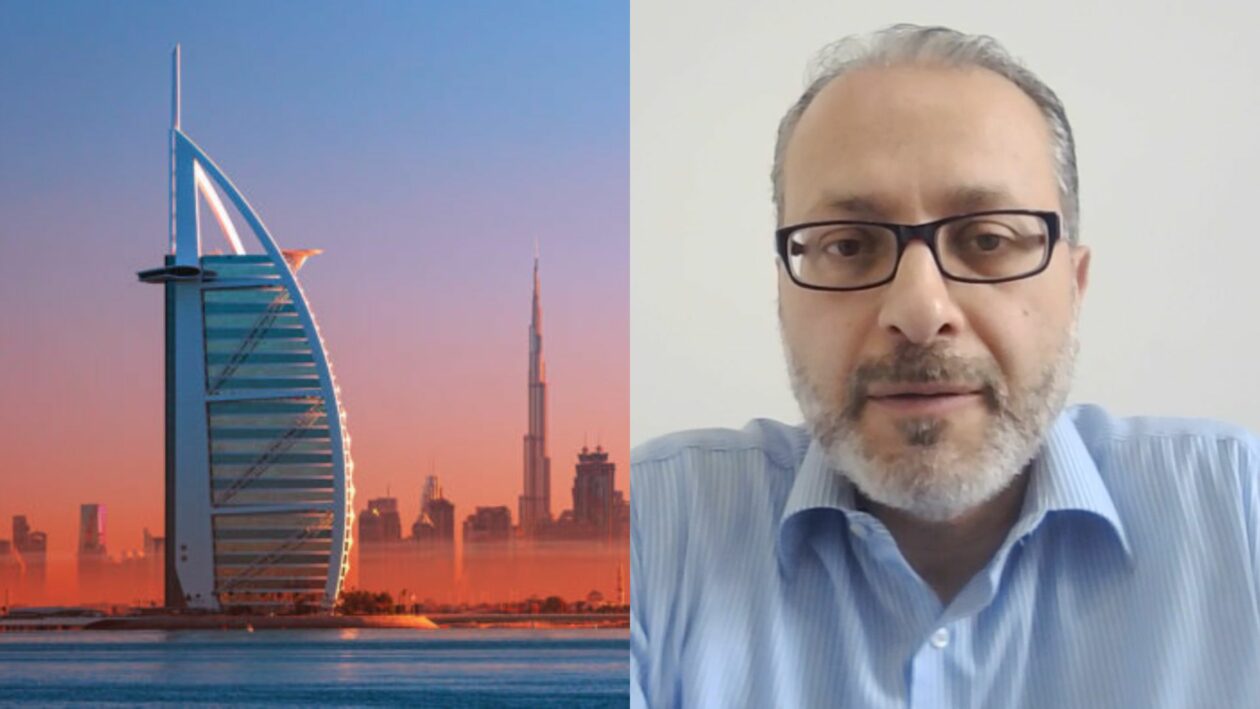In an interview with Forkast’s Maha Shah, Ghassan Jumblat, fintech director at financial services company Integrated Communications Channel talked about steps taken by the United Arab Emirates to establish a regulatory framework for cryptocurrencies, the Emirates Blockchain Strategy 2021, and the Dubai Multi Commodities Centre (DMCC) Crypto Centre.
Jumblat, whose company is registered with the DMCC, said the UAE government’s open-door policy towards competition and innovation will prove beneficial to local blockchain and cryptocurrency startups.
The following Q&A has been edited for clarity and length.
Maha Shah: There is lots happening in the region. You were just at the Dubai Fintech Summit. What were the topics discussed there?
Ghassan Jumblat: The UAE has been working to create a regulatory framework for cryptocurrency and the blockchain. In 2019, the UAE launched the Emirates Blockchain Strategy 2021, which plans to have 50% of government transactions conducted on blockchain. We also have the Dubai Multi Commodities Centre. It launched its own crypto commodity in 2021. The DMCC also launched DigitalSugar, a blockchain-based platform that enables the trading of sugar on a digital platform.
The DMCC Crypto Centre is to support crypto and blockchain technologies and promote global trading via Dubai. The UAE has its own exchange for cryptocurrency named BitOasis. It’s built on blockchain to help users trade cryptocurrencies. ArabianChain is another UAE-based blockchain startup, a public blockchain for the Arab world.
Shah: There’s Dubai’s VARA [the Virtual Assets Regulatory Authority] and then there’s ADGM [Abu Dhabi Global Market] free zone. What are the strengths and weaknesses of these two regulators, especially from an exchange perspective?
Jumblat: They complement each other. Both have the same concept of promoting digital cryptocurrencies and virtual assets, protecting the investor and promoting responsible business growth.
You can see how VARA is creating appropriate laws and regulations defining virtual assets, and you see the same is happening in Abu Dhabi. There is definitely coordination between them and sharing of knowledge of mistakes and how to do things better and more efficiently.
Shah: How might Dubai’s strategic location position it as a leading hub or, at the very least, an important center for digital assets in the future?
Jumblat: In March 2022, the Dubai law regulating virtual assets came into effect. The law created VARA as a regulatory body and empowered VARA to create appropriate laws and regulations. VARA defines virtual assets as well. They identified services that require licenses. I can see Dubai being a global hub for digital assets. They are doing it responsibly.
Hong Kong recently announced opening up to retail investors in its new crypto regulatory regime. So Hong Kong now is seen as a digital asset-friendly jurisdiction because they included the retail investor in the regime. Also, Hong Kong recently tokenized green bonds, the first authority to do that in the world.
I would say Dubai is definitely going to be a global hub in its region with Hong Kong in Asia.
Shah: There are bad actors as well. FTX also got a VARA license. Are the authorities now closing any loopholes in licensing laws?
Jumblat: Definitely there are bad actors and VARA and other regulators are trying their best to educate people. Public education is very important.
And when it comes to adoption of digital assets, you need to engage teenagers. I will give you an example. Last Christmas, my wife asked my son what he wanted for Christmas and he said assets on the popular Fortnite online game. It took my wife two to three days to grasp the idea of her buying him something that she cannot touch.
Industries like games, fashion and music can help teenagers understand what digital assets are and to make it widely accepted. Of course, it should be done with care and due diligence when sharing financial or other information.
Shah: Tell us about the Digital Dirham or the UAE’s CBDC. Do you think that’s going to come out soon? What use cases do you expect to come out of the Digital Dirham?
Jumblat: The latest plan is to unveil the Digital Dirham by mid 2024. One thing we have to know about the Digital Dirham, it’s backed up by the government. So from my side, it’s risk free. It’s issued and guaranteed by the central bank and serves as a secure, cost effective and efficient payment.
Instead of having a credit card, you’re going to have a wallet which has Digital Dirham backed by the central bank.
The Digital Dirham will be available for most domestic payments, supermarkets, schools, restaurants, anything in the mall. When it comes to cross-border payments or online shopping outside the UAE, some kind of contract with other countries or with other big retailers like Amazon, Google Pay or Microsoft will be needed to use the Digital Dirham.
I told my boss recently that when the Digital Dirham arrives, I will accept 50% of my salary in Digital Dirham and that percentage might grow when the adoption rate increases. So it’s out there. The plan is there and I think it’s just a matter of time.
Shah: The U.S. is cracking down on crypto and most exchanges are looking at friendlier jurisdictions. Do you think that the UAE will favor local exchanges or will it allow foreign competition to come in?
Jumblat: The UAE is built on not being a closed environment so it definitely encourages competition. Like Binance, it’s been there from day one.
Competition locally is also encouraged, as well as support for blockchain and cryptocurrency startups. Locals are more likely to use Dubai local exchanges. People who come and work in Dubai and their job entails moving around regions, they may favor international exchanges.

